Whole grains
Whole grains are a good source of fiber, which helps support bowel movements, keeps stools bulky (soft), and prevents constipation.
In addition, whole grains also contain many B vitamins, which help increase metabolism and energy for the body, supporting the digestive system.
Therefore, whole grains such as brown rice, oats, buckwheat, etc. can be considered good foods for digestion and should be added to the daily diet.
Yogurt and kefir
Yogurt and kefir are both fermented milk products, so they are both rich sources of probiotics - a group of beneficial bacteria that help maintain the balance of intestinal microflora and aid digestion.

Probiotics in yogurt help boost immunity.
In addition, probiotics in yogurt also help boost immunity, reducing the risk of digestive diseases such as stomach ulcers and irritable bowel syndrome.
Banana
Bananas are good for digestion because they contain small amounts of amylase and maltase enzymes, which help break down carbohydrates into simple sugar molecules that are easily absorbed by the body. On the other hand, this fruit is also rich in soluble fiber (pectin), which aids digestion and prevents constipation.
In addition, bananas are also rich in potassium, which helps maintain electrolyte balance, limit cramps and heart rhythm disturbances, and is especially useful in cases of dehydration due to diarrhea.
Pineapple
Pineapple contains a lot of bromelain, an enzyme that helps break down protein into easily absorbed amino acids; thereby, reducing the pressure of protein digestion on the stomach.
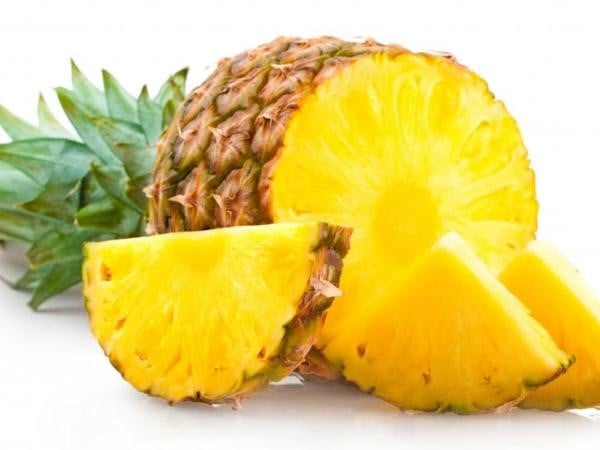
Pineapple is rich in bromelain, an enzyme that helps break down protein into easily absorbed amino acids.
In addition, pineapple is also rich in vitamin C and antioxidants (flavonoids, phenolic acids), which help strengthen resistance and protect intestinal cells from damage caused by inflammation.
Papaya
Papaya is a good food for digestion because this fruit is a rich source of papain, an enzyme that can break down protein, helping the stomach improve the digestion of protein.
In addition, papaya also contains a lot of soluble fiber, which helps improve both constipation and diarrhea, which are common in people with digestive disorders.
Ripe mango
Ripe mangoes contain a small amount of the enzyme amylase, which helps break down complex carbohydrates into simple sugar molecules, making it easier for the intestines to absorb nutrients from food.
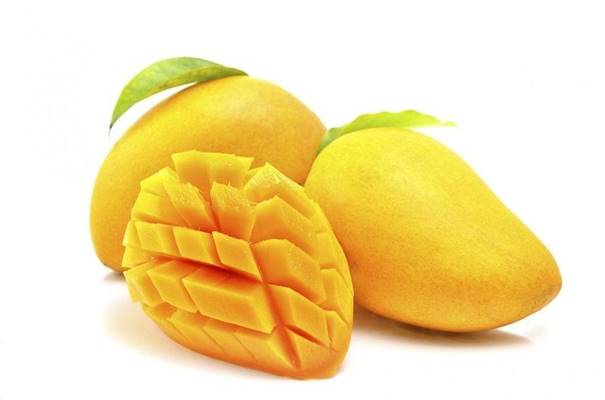
Mangoes contain vitamin A and vitamin C, which have antioxidant properties that help protect the intestinal mucosa.
In addition, mangoes also contain vitamin A and vitamin C, which have antioxidant properties, helping to protect the intestinal mucosa and other organs in the digestive system (liver, esophagus, stomach, etc.) from damage and inflammation.
Kiwi
Kiwis are also on the list of foods that are good for digestion because they contain the enzyme actinidin, which helps break down proteins and enhances the digestion of protein-rich foods in the stomach. On the other hand, kiwis also provide a large amount of soluble and insoluble fiber, which helps regulate intestinal motility and effectively prevents constipation.
Avocado
Avocados contain the enzyme lipase, which helps break down fat into easily digestible fatty acids, helping the small intestine absorb fat more effectively.
Additionally, avocados provide vitamin E, a powerful antioxidant that plays an important role in reducing oxidative damage, maintaining intestinal balance and mucosal barrier integrity, regulating inflammatory immune responses, and regulating gut microbiota.
Garlic
Not only does it have an attractive flavor, garlic is also a good food for digestion because this tuber contains many prebiotics (prebiotics), which help nourish beneficial bacteria in the intestines, thereby enhancing digestive and immune functions, reducing the risk of digestive diseases.
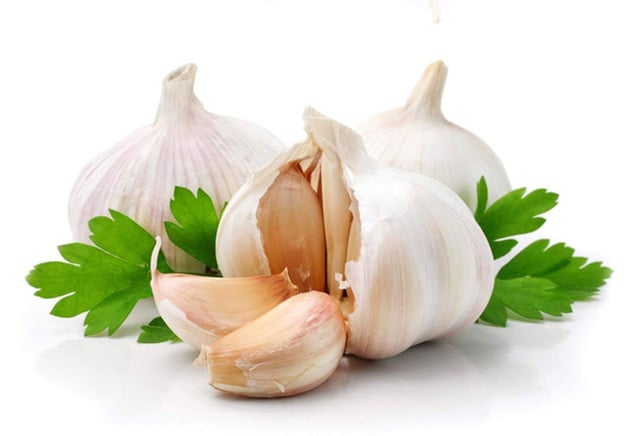
Garlic also contains allicin, a powerful antioxidant that can help protect the stomach lining from infection.
In addition, garlic also contains allicin, a powerful antioxidant that can help protect the stomach lining from infection and inflammation caused by H. pylori bacteria.
Onion
Onions are also a rich source of prebiotics, which help promote the growth of beneficial bacteria in the gut. This helps improve digestion and support gut health.
In addition, onions also contain quercetin, a powerful antioxidant that helps reduce inflammation and protect digestive tissues from damage caused by free radicals.
Asparagus
Asparagus is a rich source of prebiotics, which help feed beneficial bacteria in the gut and support immune health.
In addition, research shows that asparagus also contains a large amount of flavonoids and saponins, two groups of powerful antioxidants with anti-inflammatory properties, helping to maintain a healthy digestive system.
Apple
Apples are good for digestion because they contain a lot of soluble and insoluble fiber, which helps regulate bowel movements, prevent constipation and aid digestion. Soluble fiber in apples, such as pectin, also helps promote the growth of beneficial bacteria in the intestines.
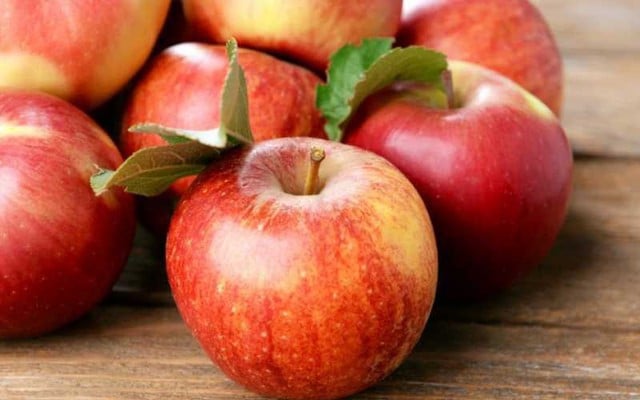
Apples are good for digestion because they are rich in soluble and insoluble fiber, which helps regulate bowel movements.
Apples are also rich in vitamin C. This is an important nutrient that helps strengthen the immune system to prevent inflammation and supports the formation of connective tissue (collagen) in the digestive mucosa, helping the mucosa to quickly recover from damage and inflammation (if any).
Green leafy vegetables
Green leafy vegetables such as spinach, kale, water spinach… are rich in fiber, support intestinal motility and prevent constipation.
They are also rich in vitamins A, C, E and the antioxidant glucosinolates, which help protect intestinal cells from damage caused by inflammation, helping to prevent the early onset of certain diseases such as stomach ulcers or chronic enteritis.
Source: https://giadinh.suckhoedoisong.vn/an-gi-de-tot-cho-he-tieu-hoa-172250415215241032.htm


![[UPDATE] April 30th parade rehearsal on Le Duan street in front of Independence Palace](https://vstatic.vietnam.vn/vietnam/resource/IMAGE/2025/4/18/8f2604c6bc5648d4b918bd6867d08396)


![[Photo] Prime Minister Pham Minh Chinh receives Mr. Jefferey Perlman, CEO of Warburg Pincus Group (USA)](https://vstatic.vietnam.vn/vietnam/resource/IMAGE/2025/4/18/c37781eeb50342f09d8fe6841db2426c)






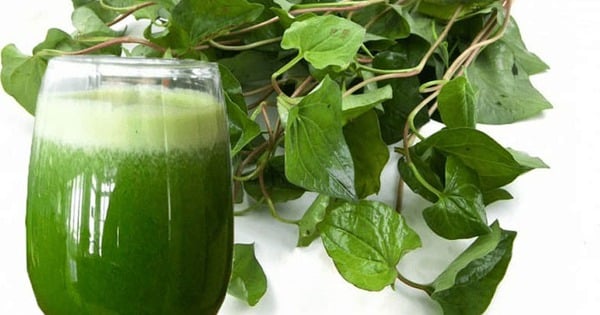





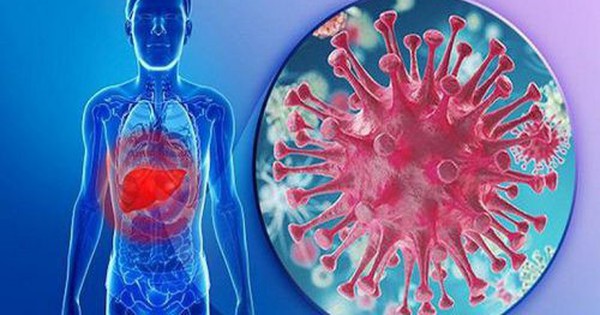


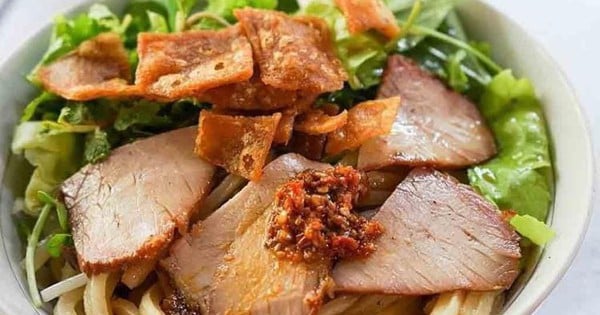
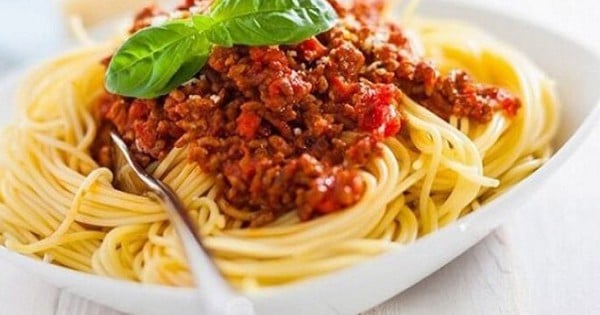





































































Comment (0)